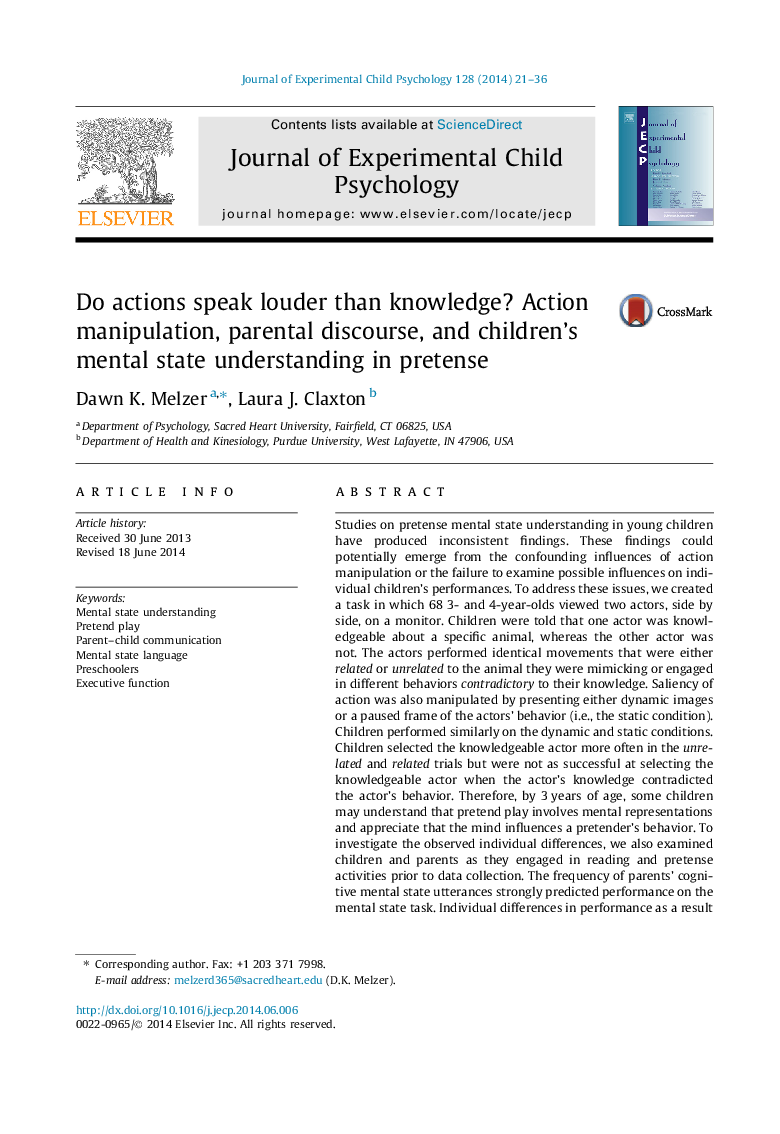| Article ID | Journal | Published Year | Pages | File Type |
|---|---|---|---|---|
| 7275174 | Journal of Experimental Child Psychology | 2014 | 16 Pages |
Abstract
Studies on pretense mental state understanding in young children have produced inconsistent findings. These findings could potentially emerge from the confounding influences of action manipulation or the failure to examine possible influences on individual children's performances. To address these issues, we created a task in which 68 3- and 4-year-olds viewed two actors, side by side, on a monitor. Children were told that one actor was knowledgeable about a specific animal, whereas the other actor was not. The actors performed identical movements that were either related or unrelated to the animal they were mimicking or engaged in different behaviors contradictory to their knowledge. Saliency of action was also manipulated by presenting either dynamic images or a paused frame of the actors' behavior (i.e., the static condition). Children performed similarly on the dynamic and static conditions. Children selected the knowledgeable actor more often in the unrelated and related trials but were not as successful at selecting the knowledgeable actor when the actor's knowledge contradicted the actor's behavior. Therefore, by 3Â years of age, some children may understand that pretend play involves mental representations and appreciate that the mind influences a pretender's behavior. To investigate the observed individual differences, we also examined children and parents as they engaged in reading and pretense activities prior to data collection. The frequency of parents' cognitive mental state utterances strongly predicted performance on the mental state task. Individual differences in performance as a result of parental language and executive functioning abilities are discussed.
Related Topics
Social Sciences and Humanities
Psychology
Developmental and Educational Psychology
Authors
Dawn K. Melzer, Laura J. Claxton,
